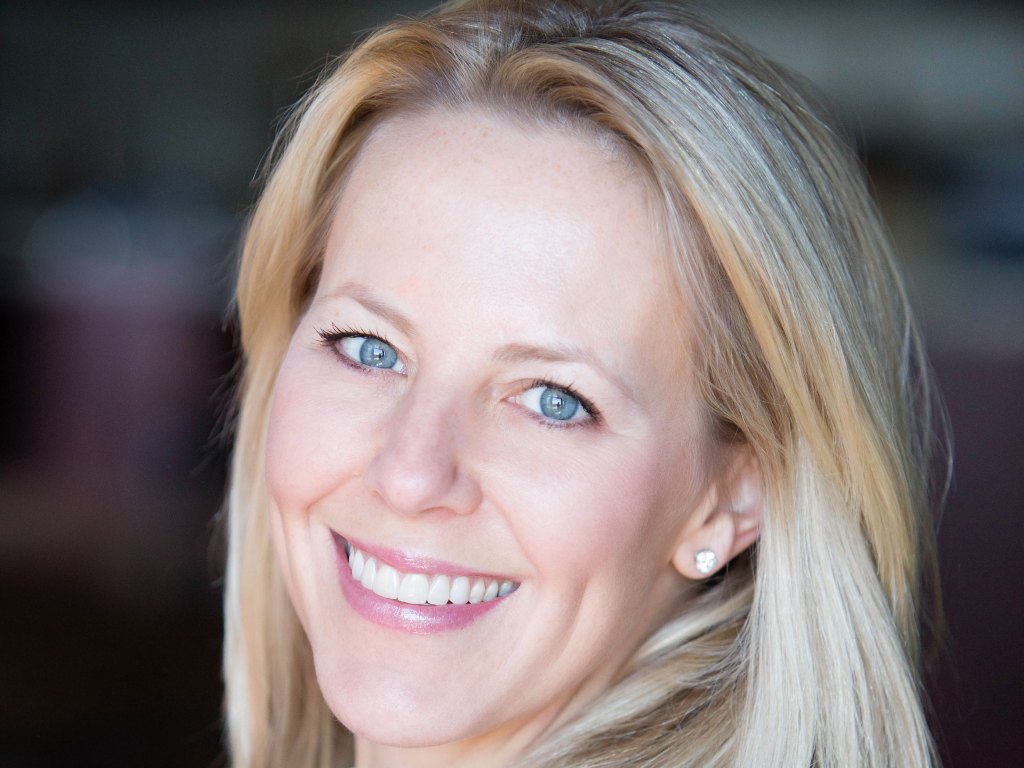Silicon Valley powerhouse Andreessen Horowitz (a16z) has some big, and bigger, news today. First, it closed a dedicated crypto fund late last week from a subset of its limited partners, who’ve provided the firm with $300 million in capital commitments. The fund had become the worst-kept secret in the venture industry, largely because so many other venture firms are trying to figure out their own related strategies and have been watching closely a16z’s slow but growing number of investments in crypto-related startups over the past five years.
Nine-year-old Andreessen Horowitz has also, at long last, brought aboard its first female general partner: Katie Haun, whose star has quietly been rising in the Bay Area over for the past couple of years. Haun — who is leading Andreessen’s crypto fund with general partner and renowned crypto enthusiast Chris Dixon — is kind of a big deal, so it’s no surprise that a16z nabbed her.
Among her other many accomplishments, Haun spent more than a decade as a federal prosecutor with the U.S. Department of Justice, where she focused on fraud, cybercrime, and corporate compliance no-no’s alongside the SEC, FBI, and Treasury. According to Haun’s bio, she was also the DOJ’s first-ever coordinator for digital assets, and she led investigations into the Mt. Gox hack and the task force that investigated and ultimately took down the online drug marketplace Silk Road. Haun is also a lecturer at Stanford Business School and she’s a director on the board of the digital exchange Coinbase, which was backed early on by a16z and is where Haun got to know Dixon, who is also on the board. (Both are keeping their seats.)
We talked with Dixon earlier today to learn more about the fund, including how he and Haun are thinking about “exits” in the cryptocurrency world when there haven’t been a whole bunch. Our conversation has been edited lightly for length.
TC: You’ve raised $300 million from some of the same investors who fund Andreessen Horowitz’s flagship funds. Will this fund in any way impact the next flagship fund? Does the firm intend to spend more time on crypto and less on other, more traditional investments?
CD: No, we’re still full-speed ahead on all traditional areas. The fund is a way for us to double down on crypto and not in any way reduce our commitment to enterprise, consumer, or bio investing.
TC: Can this new fund invest in other investors’ crypto funds, as Union Square Ventures has been actively doing?
CD: It could, but we don’t plan to. We invested in Polychain and a few others about one-and-a-half years ago when we were figuring out our new crypto strategy. Now, with the full fund and investing in both early-stage and later-stage in crypto projects, the mandate is to be investing directly, though [we] never say never to anything.

TC: How many crypto investments has the firm made over the years, and will any of them be tucked into this new fund?
CD: We’ve made about 20 crypto investments over the last five years. [Bitcoin competitor] Ripple was my first investment in January 2013 and Coinbase later in 2013, then we did 21.co, which became Earn [and sold earlier this year to Coinbase]. We did a few others — OpenBazaar and Mediachain — then the space got a lot more interesting with the rise of Ethereum and talented entrepreneurs entering the space. Those [investments] will remain in the funds where we put them in.
TC: Have you made investments from this new fund?
CD: We’re in process with a few, but nothing that’s been finalized.
TC: How have you been structuring these investments?
CD: Some are equity investments, but with token provisions [meaning if the teams create a token, investors get access to them]. SAFTs are another thing we’ve done. We’ve also done direct, over-the-counter purchases of Bitcoin and Ethereum. But we were running into limits with what we could do out of the main fund. Now we’ll be able to do all sorts of things, as long as [we’re talking with] great entrepreneurs who are working on big and important projects with economic terms that make sense.
TC: What’s an exit going to look like with these deals?
CD: It’s a good question. To date, we’ve never sold any of our crypto assets. A lot of people in the market are day trading but we very much see this as investing. We’d expect any investment to have a five- to ten-year holding period. Some of these projects could have tokens that are freely tradable, so there’s the potential to have an exit that way.
The most likely outcome is we invest in an early-stage project and we receive coins or tokens in exchange for [our commitment] and if the project becomes successful, those digital assets appreciate when that thesis is played out. But if we invest in some project that will be used by hundreds of millions of people, we wouldn’t want to exit until that’s realized.
TC: Presumably, you will not be paying your investors back in tokens?
CD: No. We have LPs who prefer fiat money.
TC: How do you think about ownership stakes in these companies?
CD: The traditional venture model of owning 10 to 20 percent of a company isn’t realistic in this world. We do think that if a project is very early stage, the valuation should reflect that. But we’re thinking more in terms of value: can this investment be big enough that it returns the fund on its own? So we don’t think in terms of percentages but value. We think this next wave of companies could be 10 times as big [as their predecessors].
TC: How are you thinking about ICOs? Are you investing in companies that will later sell shares to non-accredited investors?
CD: If done the right way, we think democratizing access is a great concept. We’re fans of the idea that more people can participate. But we don’t think [ICOs as they’re widely considered today] are regulatory compliant and we’ve never gotten involved in one of those. We participated in Filecoin, for example, but [its offering] was made only to accredited investors.
TC: What about conflicts? It’s very early days, so I wonder if the rules around backing similar companies are different. In traditional VC, obviously, it’s pretty much verboten.
CD: The norm in the crypto world is different than the traditional venture world. Typically in VC, you won’t invest in a direct competitor. But with crypto, there’s a different ethos. It’s more cooperative. People would rather grow the pie together rather than fight over the size of the pie. We always make sure that projects are okay with any investments that we’re considering that might be overlapping. But in emerging spaces, it’s hard to think about categories as it’s kind of fluid. I’d say standards are evolving, but I’d also say it’s okay to [back more than one currency, for example].
TC: How about so-called stable coins, specifically? You backed Basis, a company that’s building a price-stable currency, which the world very much needs in order for cryptocurrencies to come into wider use. Do you think there’s room for more than one stable coin?
TC: We’ve backed both Basis and Maker, though the mechanics are pretty different and we think can be complementary. We also spoke with both when we made our investments.
We do think it’s a really important idea, to have a coin pegged to something like the U.S. dollar in order to make the experience more mainstream and accessible, [versus a world rife with] these volatile coins. We think it’s such an important piece of infrastructure that there could be multiple winners.































Comment